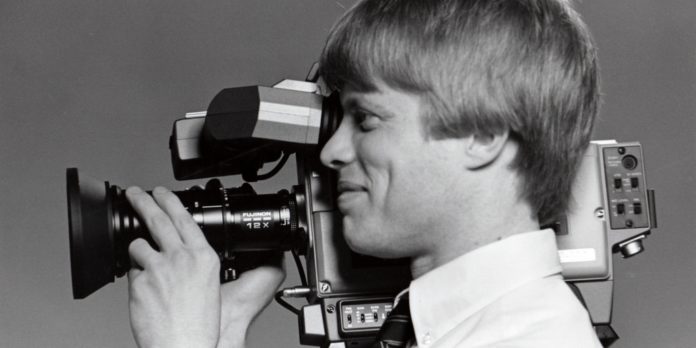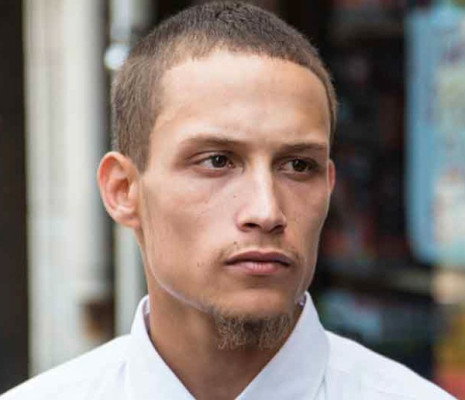
We have found today that recording police interactions has become a necessity if law enforcement agents are ever to be brought to justice, and the Daily Dot has provided some useful tips to keep yourself better protected.
In cases such as that of Walter Scott who died at the hands of Officer Michael Slager, we know that if it had not been for the video evidence, including Slager’s reaction to the shooting in which he laughed about it, this would have gone down as just another death of an unarmed black man.
Our complacency in cases of police brutality is a sad indication of overwhelming trust our system—and the public—places in the hands of police officers. And it’s this trust judges and grand juries have in police that has made citizen journalism such an important tool in fighting against such instances.
The reality of the situation is now being recognized across the nation, as is apparent in this satirical, yet disturbingly true clip from The Nightly Show with Larry Wilmore titled Police Brutality Video Production 101 with Professor Mike Yard:
Due to the level of intimidation that can accompany an encounter with police officers, it’s necessary for citizens to know their rights, as well as how to record altercations without violating the law, or putting themselves in a situation where their civil liberties might be abused.
There are quite a few risks involved in filming these incidents, one of the biggest being retaliation from the police. In a statement from Feidin Santana, the man who filmed the death of Walter Scott:
“I thought about just erasing the video and getting out of the community.”
This fear, as the Daily Dot put it, is “far from paranoia.” There are plenty of cases of police punishing those who testify against them, or produce evidence of their wrongful actions. Ramsey Orta, who filmed the death of Eric Garner, spent five months in Riker’s Island. This was after Garner’s death was found to be a homicide, yet oddly enough, the grand jury decided against charging the officer who actually took Garner’s life.
 (Ramsey Orta)
(Ramsey Orta)
Orta has since made the statement that he regrets stepping forward with the film as he and his family are continuously followed and harassed by police. Orta states:
“Sometimes I regret just not minding my business,” he told Time. “Because it just put me in a messed-up predicament.”
In another case in Florida, the state was forced to pay out $15,000 to a man who was wrongfully jailed for recording police, and in Massachusetts, a woman was charged with “illegal wiretapping” for recording her own arrest. Because our First Amendment right is being blatantly stomped upon, it is important for people to understand both the risks involved in filming police, as well as methods to avoid those risks.
The most important piece of advice given is to stay out of the way. In fact, while you cannot secretly record police, it’s best if you can avoid being directly noticed. In the case of Feidin Santana’s recording of Walter Scott’s death, the officer barely gave an indication that he noticed Santana. This was because Mr. Santana stayed well out of the way.
A common argument police provide is that those who are recording their actions are “interfering.” This usually results in a broken phone or camera, which one might consider a mild repercussion in light of other possible outcomes, so it’s best to film at a reasonable distance.
The next piece of advice given is that if you do end up catching the attention of an officer and he tells you to stop recording, state your complicity but be sure to specify it is “under protest,” and then shut your device off. If the officer simply asks what you are doing, do not confront him by saying “I’m making sure you are doing your job,” or any variation of that, but rather, “Officer, I’m not interfering. I’m asserting my First Amendment rights. You’re being documented and recorded offsite.”
It is sad that we have reached a point in our society where we must provide citizens tips for protecting themselves against the supposed “protectors.” While we are in need of more heroes with cameras, it is a decision that requires forethought.
Are you willing to be detained and even have your property destroyed in the name of defending your rights?
Should you choose to step forward (which we hope more citizens will) and engage in a situation by recording it, doing so properly could help to further prevent potentially serious cases of police wrongdoing.
Sources:
Branstetter, Ben. The Daily Dot. May 15, 2015. (http://www.dailydot.com/opinion/walter-scott-police-brutality-filming-training/?fb=ss&prtnr=attn)
Qwest7. EurWeb. Aug 6, 2015. (http://www.eurweb.com/2015/08/ramsey-orta-regrets-filming-eric-garners-death/)






Here’s another tip:
If you’re using a phone, please turn it sideways in order to shoot widescreen, rather than tallscreen, video.